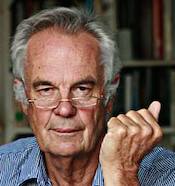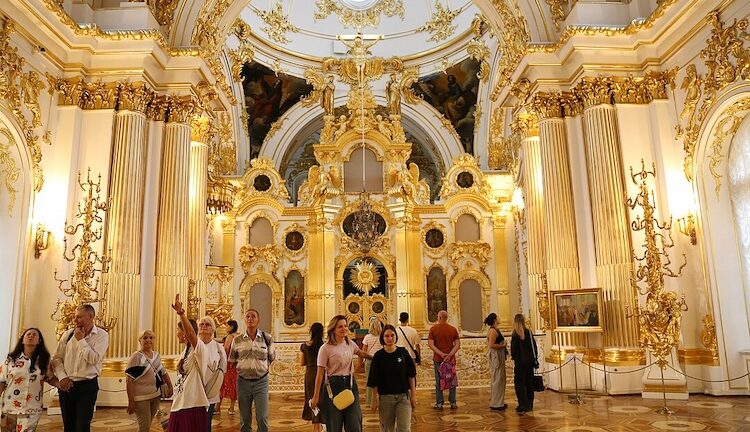By Jonathan Power*
LUND, Sweden | 16 July 2025 (IDN) — Observers say that what drives President Vladimir Putin is to make Russia respected. However, perhaps Putin overestimates the extent of Russia’s existing power. He has overlooked which trumpets to blow — it is not his “hang tough” militaristic policies in international affairs, especially vis-à-vis Ukraine, the EU and the United States. It is Russia’s culture.
These thoughts were prompted by watching the opening twelve years ago of the magnificent extension of the Mariinsky Theatre in St. Petersburg on Mezzo, the French cable station for classical music. (You can see it on YouTube.)

Valery Gergiev runs the Mariinsky, and he arranged a show (and conducted it) so rich and of such supreme achievement that it overshadowed in my memory all the great performances I’ve seen, whether in London, New York, Paris or Moscow. Each segment lasted a bare four minutes, alternating between opera, ballet, two solo violinists, and one pianist. It went on for two hours or more with the greatest stars of the Russian firmament, plus two or three Western performers.
Putin was in the audience, not in the official box but down in the middle of the stalls. Was he aware of the political power of an event like this? I doubt it. Nor of the power of the rest of Russia’s great inheritance.
In St Petersburg, there is also a second great ballet company, the Mikhailovsky. There is the Hermitage Museum, which, along with its peer, the Louvre in Paris, takes two days to do justice to. Besides its superb collection of Western art, it also features some of the finest Russian art. Often ignored by connoisseurs, it is excellent. There is the mouth-dropping architecture of the city, including the Winter Palace, which surpasses every other northern European city, apart from Versailles near Paris.
In Moscow, there are the Bolshoi Ballet and Opera. Russia is home to two of the world’s leading ballet companies.
Moscow has also been home to important publishing houses that published the world’s greatest novelist, Tolstoy. And Dostoevsky, Turgenev, Chekhov, Solzhenitsyn, Pasternak and the poets, Pushkin and Akhmatova.
Moscow also published and usually held the first performances of the music of Tchaikovsky, Borodin, Rachmaninov, Prokofiev, Glinka, Mussorgsky, and the modern composers Shostakovich and Stravinsky, as well as Khachaturian.
Italy may be better in painting and sculpture, Holland in painting, Britain and France are good in literature and Germany and Austria are good in music. (I’m afraid the US doesn’t get a mention.) But no country has such distinction in so many of the arts.
Mr Putin, isn’t that enough? No, I hear you. You will say Russia has to build up its economy and military might.
It is true (and not often reported) that Russia’s unemployment is the lowest among the G8 countries. Its growth rate is the highest. Its currency is the best-performing currency this year. Moreover, it has a small deficit. However, interest rates continue to climb, along with inflation. No one anticipated that there would be so many pluses and so few negatives after years of sanctions, followed by war.
Incomes have doubled under Putin, and the pensioners are getting real support. Russia produces some of the world’s best scientists. However, it remains on the oil needle, and its economy is plagued by corruption and maladministration. The University of Moscow is not one of the top-ranked universities in the world league tables. Russia is unlikely to advance economically at a rapid rate in the future.
Of course, a country that has 5,459 nuclear warheads has power of sorts.
However, we all know — or should know — that nuclear weapons are unusable. The US and Russia no longer regard each other as nuclear enemies, despite the occasional head-butting. So why do both sides continue to possess these weapons?
Putin is more than fortunate to preside over a country with one of the most eclectic cultures on the face of the earth. Indeed, because this culture’s roots and manner are European, Russia should be regarded as a part of the West. Imagine how Russia would be if the Muslims from the steppe had won their battles against Moscow and Kiev and not the Christians. Europe would have been changed beyond recognition. It wasn’t just Russian armies that prevailed; it was Russian culture.
Mr Putin: Real power does not grow out of the barrel of a gun. That should be a lesson from your own history. Valery Gergiev, play on!
*Jonathan Power has been an international foreign affairs columnist for over 40 years and a columnist and commentator for the International Herald Tribune (now the New York Times) for 17 years. [IDN-InDepthNews]
Copyright © Jonathan Power
Visit www.jonathanpowerjournalist.com
Image: Hermitage Museum, Saint Petersburg, Russia. CC BY 4.0


